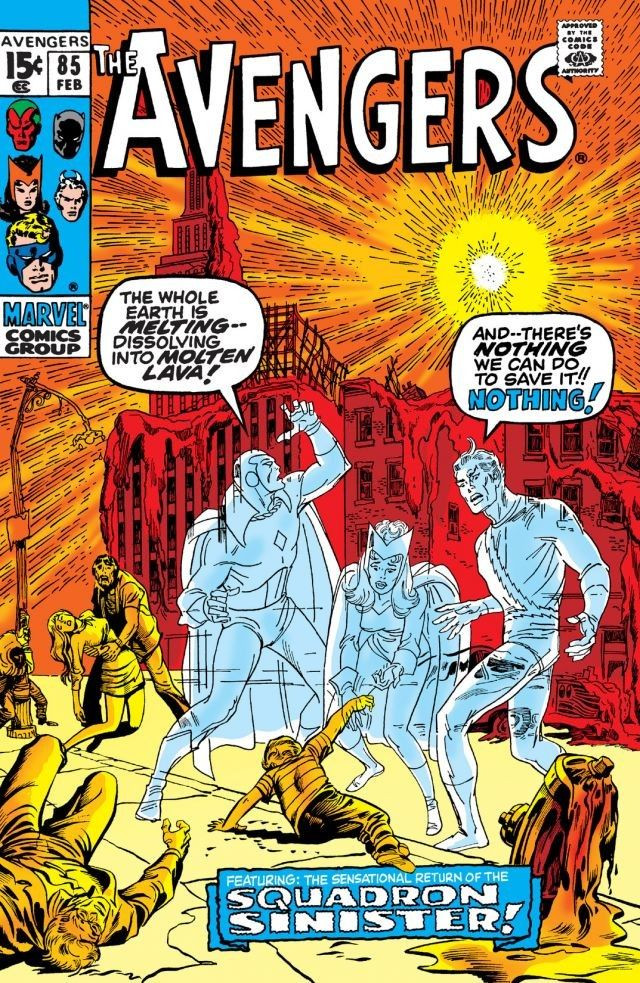The picture has made over a billion dollars so far, several of them our own. People like it, including -- to our neverending surprise -- folks who don't really dig comics. What do you people even see in these movies?
For his own part, Fr. Anonymous reckons that a copy of The Avengers was among the first comics he ever bought. (Probably #85, an alternate-reality yarn featuring the Squadron Supreme). Must have read that sucker a million times. Even looking at this picture, our mind's eye adds the spine roll, torn corner, and piece of Scotch tape.
So we were pretty excited about the picture. And, speaking as a fan, our review of the movie is: Sure. Great. And at the same time: Ehhh.
Joss Whedon did a fine job of balancing quick characterizations and context-rich action scenes. Several of the performances were very good, the effects were great. It was loads of fun to see our childhood fantasies projected onto the silver screen. But at the same time, the picture was cautious, careful to protect Marvel's insanely valuable intellectual property, and to leave ample room for sequels. This left it, to our eyes, a little soulless. Which doesn't mean we won't watch it again, probably more than once; it just means it lacked the kind of reckless we'll-try-anything daring that you can get in a low-stakes medium like pulp magazines or actual printed-on-paper comics.
But the movie's massive success has brought a new focus to the strange, sad story of Stan Lee and Jack Kirby. For those who don't know, those are the guys who invented most of the Marvel Comics characters; they are both legends in the industry. Lee was and remains a writer and, more successfully, a promoter, both of himself and of his products. Kirby, who died in the 1990s, was one of the most gifted graphic storytellers of his time. His drafting skills never approached those of, say, Will Eisner; but his sheer creativity was wondrous.
Lee and Kirby are a legendary team, in their own way even more legendary than Superman creators Jerry Siegel and Joe Schuster. The sadness, of course, is that Lee made (and still makes) quite a bit of money from their creations, and Kirby didn't. Just how that worked, and whether it was right or just or even legal, is a complicated matter. It is largely because of this story, along with that of Siegel & Schuster, that "creators' rights" is such a big part of the modern comics industry.
If you're interested, Alex Pappademas offers this relatively balanced introduction in Grantland. Neil Kirby offers this brief memoir of his father in the LA Times.


1 comment:
nice piece by neil kirby. thanks, kc
Post a Comment